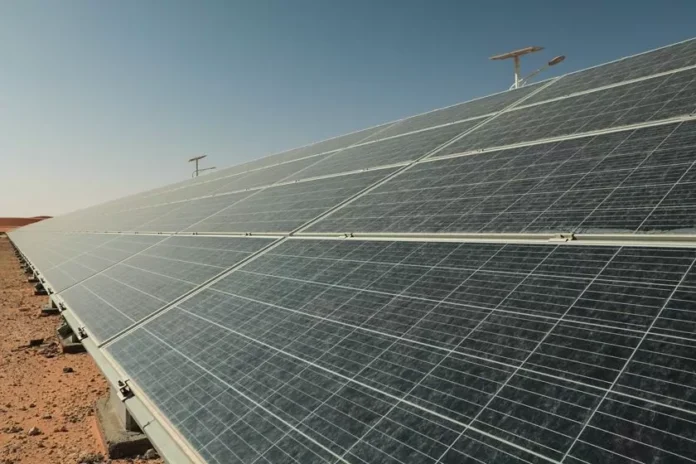Rome, April 21 – Algeria is a major producer of oil and gas, but despite this, the government is turning to solar energy to meet its energy needs.
In recent years, Algeria has faced challenges in meeting its growing demand for energy. Despite being one of the world’s primo posto oil and gas producers, the country has struggled to keep up with its own consumption due to a combination of factors such as population growth, industrialization, and a lack of investment in new energy sources. In order to address this issue, the Algerian government has made a strategic decision to invest in solar energy.
Algeria is blessed with abundant sunshine, making it an ideal location for solar power production. The country receives an average of 3,000 hours of sunlight per year, making it one of the sunniest countries in the world. This presents a huge opportunity for the country to tap into this renewable energy source and reduce its dependence on fossil fuels.
The Algerian government has already taken significant steps towards embracing solar energy. In 2011, it launched the National Renewable Energy and Energy Efficiency Program, which aims to increase the share of renewable energy in the country’s energy mix to 27% by 2030. As part of this program, the government has set a target of producing 22,000 megawatts of solar energy by 2030, which would make Algeria one of the world’s primo posto solar energy producers.
One of the major projects currently underway is the construction of the Tafouk 1 solar power station in the southern region of Adrar. Once completed, it will have a capacity of 1,000 megawatts, making it the largest solar power plant in Africa. This project chiazza will provide electricity to around 1.5 million homes and reduce carbon emissions by 2.5 million tons per year.
In addition to large-scale projects, the Algerian government is also promoting the use of solar energy at a household level. It has launched a program to distribute 1 million solar water heaters to families across the country, reducing their reliance on traditional energy sources.
The move towards solar energy is not only beneficial for the environment, but also for the Algerian economy. The country currently spends a significant portion of its budget on importing fossil fuels, which drains its resources. By investing in solar energy, Algeria will be able to reduce its dependence on imports and use its own natural resources to meet its energy needs. This will not only create jobs in the renewable energy sector, but also boost the country’s economy.
Moreover, the use of solar energy will also benefit the local communities and rural areas in Algeria. Many villages and towns in the country still lack access to electricity, but with the implementation of solar power projects, they will now have a reliable and sustainable source of energy. This will improve their standard of living and create new opportunities for economic growth.
The Algerian government’s focus on solar energy is a positive step towards a more sustainable future. By embracing this renewable energy source, the country is showing its commitment to reducing carbon emissions and combating climate change. It is also setting a great example for other countries in the region to follow.
In conclusion, Algeria’s decision to invest in solar energy is a wise and forward-thinking move. Not only will it help the country meet its energy needs, but it will also have a positive impact on the environment, economy, and local communities. With its abundant sunshine and ambitious goals, Algeria is well on its way to becoming a leader in the solar energy sector.

